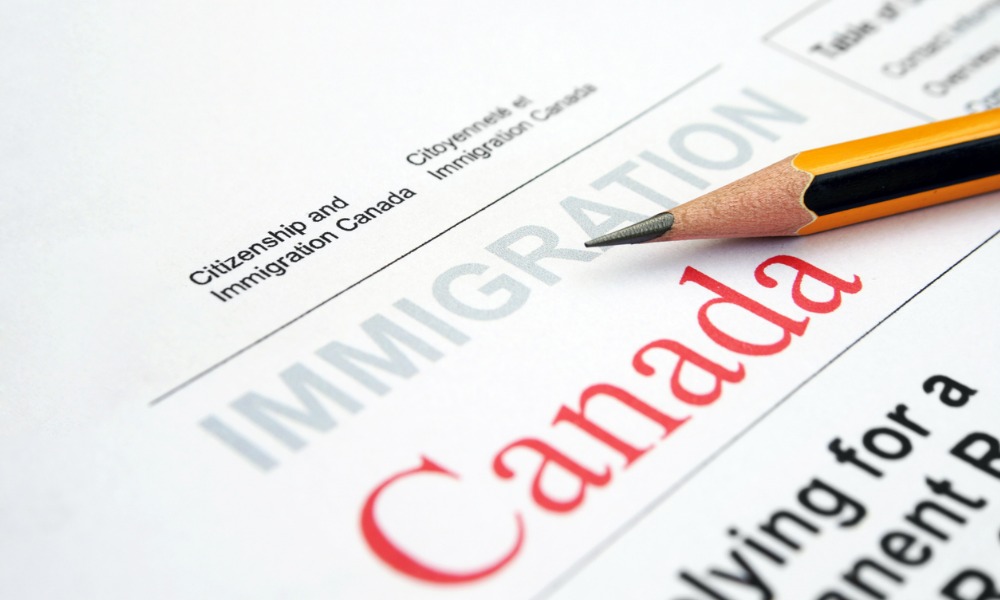How does sponsoring an immigrant work in Canada?
Canadian immigration sponsorship is governed by the family reunification provisions (Section 12 (1)) of the Immigration and Refugee Protection Act (IRPA) and its Regulations (IRPA Regulations).
Under IRPA, there are two methods of Canadian immigration sponsorship (also called family class sponsorship): family sponsorship and spousal sponsorship.
Family Sponsorship
Before a Canadian citizen or permanent resident can sponsor a family member or relative, they must be:
- 18 years old or older;
- currently living in Canada; and
- a Canadian citizen, a permanent resident of Canada, or a registered Indian under the Indian Act.
Before a family member or relative can move to Canada, they must belong to any of these classifications:
- Parents and Grandparents: must be related to the Canadian sponsor either by blood or through adoption;
- Siblings: must be related to the Canadian sponsor either by blood or through adoption and must qualify as a “dependent child”;
- Orphaned Family Members: must be related to the Canadian sponsor by blood or by adoption, whose parents passed away, are single, and are under 18 years old;
- Other Relatives: where the Canadian sponsor doesn’t have any other living relative in Canada or outside Canada whom they can sponsor. These relatives must be related to the Canadian sponsor by blood or through adoption.
Spousal Sponsorship
A sponsor in a spousal sponsorship must have the same required eligibilities mentioned above under Family Sponsorship.
However, they differ on the eligibilities required for the sponsored person. For a foreign national (non-Canadian) spouse to become a sponsored spouse, they must fall under any of the categories of Spouse, Common-Law Partner, or Conjugal Partner.
- Spouse:
- either sex
- at least 18 years old
- legally married to the Canadian sponsor
- Common-Law Partner:
- either sex
- at least 18 years old
- legally married to the Canadian sponsor
- has lived with the Canadian sponsor for the past 12 months without any long periods apart
- Conjugal Partner:
- either sex
- at least 18 years old
- not legally married to the Canadian sponsor
- in a common-law relationship with the Canadian sponsor for at least 12 months
- currently not living in Canada
- They cannot marry the Canadian sponsor in their home country due to legal and immigration reasons or live with the Canadian sponsor in Canada
Application for Sponsorship
After determining that the Canadian sponsor and the person they are sponsoring are eligible under the law and regulations governing Canadian immigration sponsorship, they may now proceed with the sponsorship application.
There are legal consequences when a Canadian immigration sponsorship has been tainted with fraud or malice:
How much does it cost to sponsor someone to Canada?
Canadian immigration sponsorship will include numerous fees, such as:
- Processing Fee: C$1,080 which includes Sponsorship Fee (C$75), Principal Applicant Processing Fee (C$490) and Right of Permanent Residence Fee (C$515).
- Right of Permanent Residence Fee: C$515 which is usually paid together with the Processing Fee for sponsored spouses or family members who are not a dependent child or a protected person. This fee may be refunded once an application for permanent residency has been denied.
- Biometrics Fee: C$85 per person, and C$170 per family of 2 or more members.
- Third-party Fees:
- Immigration Medical Exams to be conducted by a Panel Physician in the sponsored person’s home country;
- Police Certificates which must be acquired from the sponsored person’s home country.
Do you need a job to sponsor someone in Canada?
Based on the above-mentioned eligibilities, a Canadian sponsor needs to have at least a stable job to sponsor their spouse or family member.
In general, there is no definitive rule on the minimum income required to become a sponsor. An exception is when a Canadian citizen or permanent resident:
- is sponsoring a dependent person who has their own dependent child or children; or
- is sponsoring a spouse, conjugal partner, or common-law partner, who will bring their dependent child with them, who also has a dependent child or children.
Only at that point will the Canadian sponsor be required to prove that they have financial resources to become a sponsor. A useful tool for this is the federal government’s Financial Evaluation form.
It would be best to consult with an immigration lawyer near you for expert advice. If you are based in Ontario, you may consult with an immigration lawyer in Ontario.
How long can you sponsor someone in Canada?
Canadian immigration sponsorship imposes certain obligations on the sponsor and on the sponsored person. One main obligation of the sponsor is a written sponsorship undertaking.
This undertaking will oblige the said sponsor to shoulder the financial needs of their sponsored spouse, family, or relative while they are in Canada.
The length of this undertaking starts on the day that the sponsored spouse, family, or relative becomes a permanent resident in Canada.
Length of Sponsorship Undertaking
Below are the periods provided by law for each sponsored spouse, family, or relative:
- biological or adopted dependent child below 22 years old: 10 years, or until age 25, whichever comes first
- dependent child above 22 years old: 3 years
- parent or grandparent: 20 years
- other relatives: 10 years
An exception from the above-mentioned length are immigration sponsorships in Quebec, which has a slightly different length of undertaking. You may refer to an immigration lawyer in Quebec for more details.
Certain factors may change over the course of a Canadian immigration sponsorship:
- changes in the personal relationship between the sponsor and the sponsored spouse or family member
- when the sponsored person becomes a Canadian citizen
- changes in the sponsor’s financial situation
- withdrawal of the sponsorship application by the sponsor, but the withdrawal was received after the sponsored spouse or family member became a permanent resident in Canada
These should not affect the length of the sponsorship.
A sponsor under Canadian immigration sponsorship has great responsibility, especially to the spouse or family member they have sponsored to move to Canada.
Got more questions regarding immigration sponsorship in Canada? Comment your questions below or ask any of the best immigration lawyers in Canada for more information.





